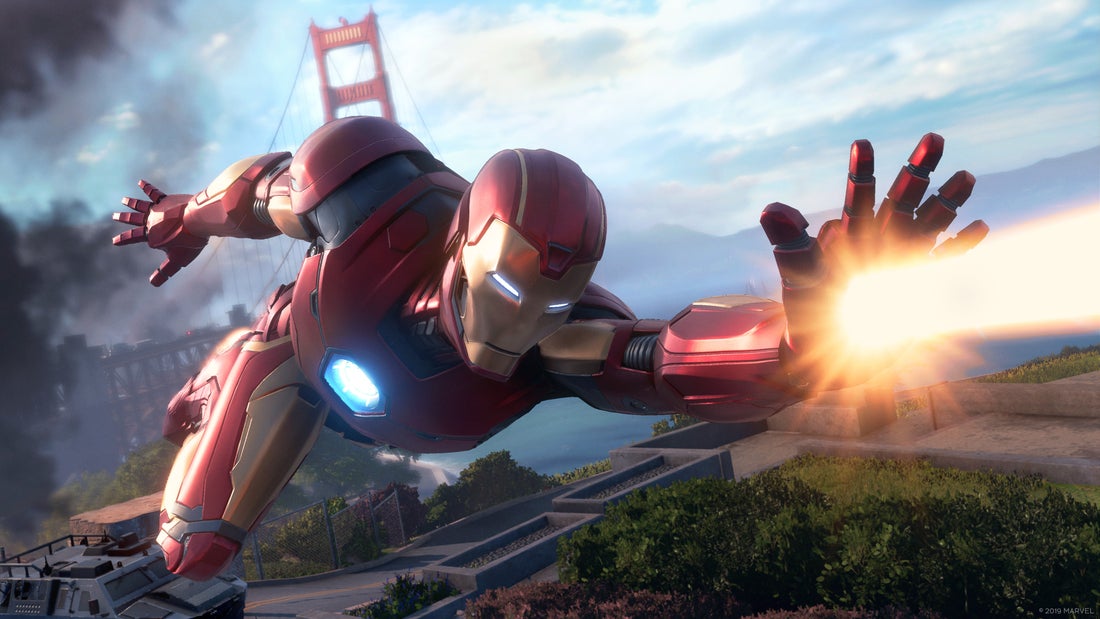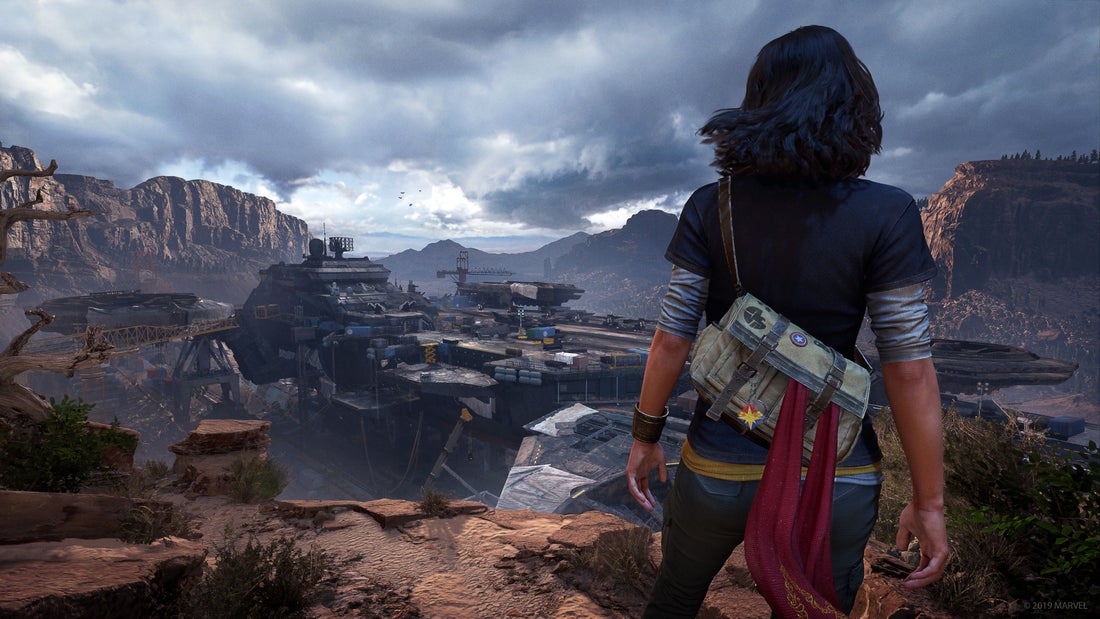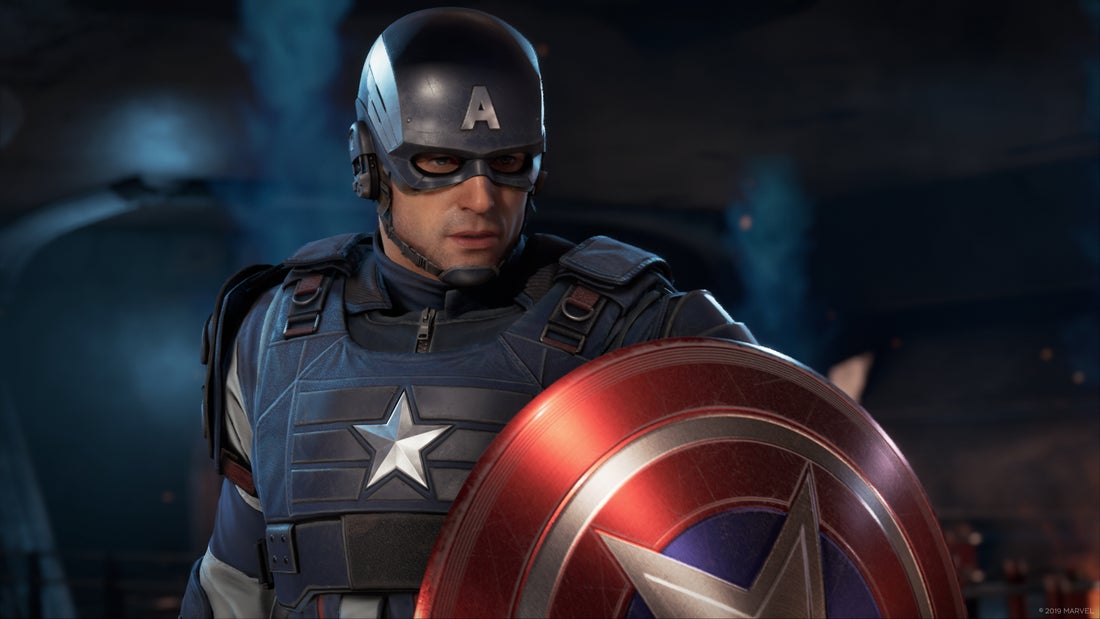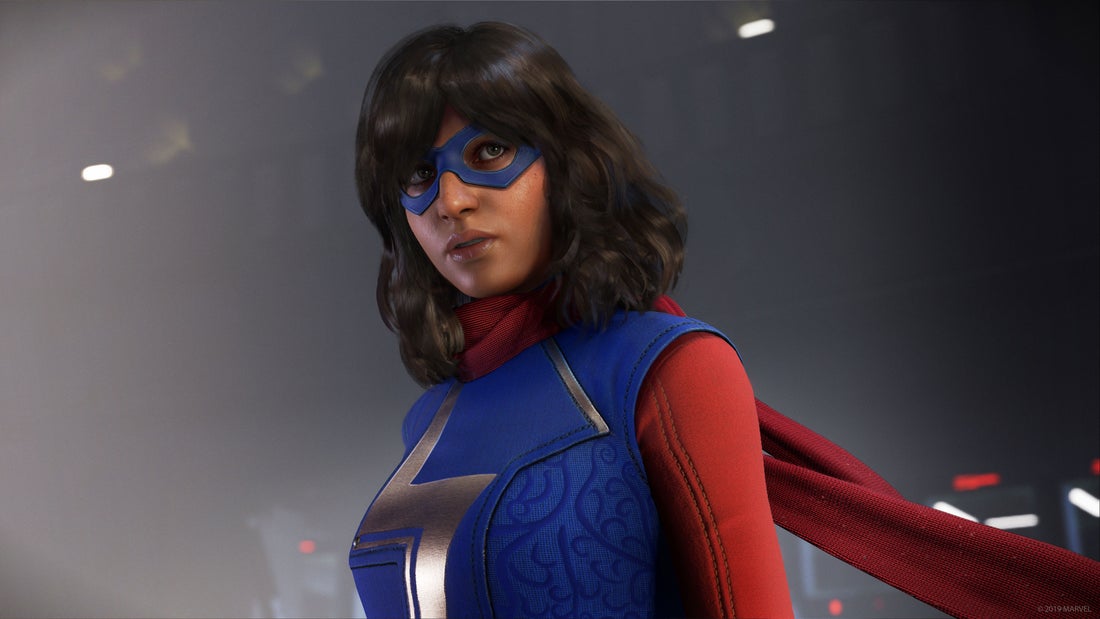Marvel's Avengers: Lackluster gameplay undermines an ambitious story
Marvel's Avengers has a great story, but the gameplay doesn't back it up

I've been covering Marvel's Avengers ever since its announcement at E3 2019, and I never quite understood the negativity directed toward the game. Yes, the gameplay looked a little generic; no, the Avengers didn't resemble their movie counterparts; yes, live-service games are overplayed and repetitive.
But Marvel's Avengers had what was clearly a great setup for an Avengers story. As long as the core gameplay was strong enough to carry that story, wouldn't that be enough?
- PS5 release date, price, specs, controller and pre-orders
- Disney Plus Premier Access explained: Cost, Mulan info, and how it works
- Plus: PS5 and Xbox Series X are getting The Witcher 3 with killer upgrades
It's a moot point, as it turns out. The story in Marvel's Avengers is, indeed, a creative and charming take on Earth's Mightiest Heroes. The only trouble is that the gameplay makes it an absolute pain so see it through to the end.
Marvel's Avengers, the live-service game never quite jells with Marvel's Avengers, the ambitious superhero narrative. And frankly, I'm not sure how the game was ever supposed to accomplish both goals. The gameplay and the story pull this well-meaning game in two drastically different directions, and as a result, make it harder for both looter-shooter and comic book narrative fans to enjoy.

A Marvel-ous story
For those who haven't followed Marvel's Avengers ever since Crystal Dynamics first announced it last year, here's what you need to know:
(Mild spoilers ensue for the first hour and general premise of the game, although there's nothing here that isn't covered in a trailer.)
Avengers superfan Kamala Khan is over the moon when she gets to meet her heroes at a big celebration, honoring a new clean energy source known as Terrigen. But a sudden, catastrophic attack summons the Avengers into action, exposing Kamala to Terrigen gas. While the Avengers manage to partially quell the threat, the casualties are brutal — especially since Captain America is among those lost. The Avengers disband after the event, which is dubbed "A-Day."
Years later, Kamala has become a budding superhero in her own right, and discovers a vital clue that reframes everything she thought she knew about A-Day. She sets out on a quest to reunite the broken Avengers, find out the truth behind Cap's death and stand up to Advanced Idea Mechanics (A.I.M.): a greedy tech corporation that wants to police the world in the Avengers' absence.
Killing off a beloved character, disbanding the titular team and introducing a new audience POV character are all daring story choices, and they pay off. Kamala is an endearing lead, and a perfect way to put a little distance between the audience and The Avengers. The "we screwed up, and we don't know if we can fix things" story is much more impactful when seen through the eyes of someone who idolized this team, and now has to learn to see them as fallible individuals instead.
Mechanically speaking, it's also a fantastic way to pace the game and introduce new characters, one at a time. Although you get a brief tutorial in the beginning where you learn to play as the different main characters (Thor, Iron Man, Hulk, Captain America and Black Widow), the game reintroduces them slowly, one at a time, and has you run through missions with each character, first as an escort to Kamala, and then as a fully playable hero. This helps each character feel integral to the overall plot and Kamala's personal story, but also ensures that the player gets a chance to take each new hero for a thorough test drive.
With an intriguing setup and a winning protagonist, Marvel's Avengers seems primed to tell a Marvel story that goes well beyond "the world is in danger, and the Avengers have to save it." But the game itself often acts as a roadblock to advancing that story.

Built for repetition
Here's a postulate that I hope is not terribly controversial: Live-service games thrive on repetition. Whether it's running raids in Final Fantasy XIV or farming upgrade materials in Destiny 2, games that demand your attention on a daily basis are more about refining your skills and equipment than seeing or doing something new every day.
This is a perfectly acceptable philosophy for the multiplayer and post-campaign modes in Marvel's Avengers. The idea is that after you've finished Kamala's journey, you'll dive into the game's repeatable War Table missions, where you and your friends can grind the same missions on increasingly high difficulties in order to max out your character levels, refine your equipment, acquire new costumes and so forth. The focus is less on advancing a story, and more on facilitating a cooperative multiplayer experience.
The only trouble is, the gameplay mechanics during the single-player campaign are exactly the same. You'll still have to slog your way through enormous levels full of forgettable enemies in search of better gear — and since the gear drops are randomized, it's entirely possible that your difficult detours will end in disappointment.
Each character needs a certain "power level" to undertake a given mission, which takes into account both a character's level and "gear level." As you defeat enemies, you'll (very, very slowly) gain XP, level up and refine your combat abilities. As you collect better gear, your character's overall power and efficacy will increase. It's a bit of an artificial way to gate off content, however, since you'll need to become proficient with half-a-dozen different characters before the campaign is done, and characters who aren't in use don't gain any XP or equipment.
To give an example from my own game, I've generally been playing through the game as Kamala, since she's the main character of the story. Once I recruited the Hulk and Iron Man, I had the option to control them instead, but didn't really see the need to — until I encountered missions that required me to play as those characters. One particular Iron Man mission that culminates in destroying an Arc Reactor had me stuck for more than half an hour of constant defeats and reloads, and unless I was willing to stop, quit the level and hunt for new equipment in a multiplayer mission, there wasn't much I could do to mitigate the challenge.
When you recruit a new character, they start at Level 1, equipped with very basic gear. When you play as a character, they gain XP and find new equipment — but when you don't play as a character, they remain static. In other words, the only way to improve a character is to take control of him or her for at least a whole mission.
This kind of thinking works fine in a cooperative multiplayer game, where every person picks a certain character or class and sticks with it for a long period of time. But when you have to build up a whole team from scratch, you'll have to either grind through training missions or suffer through constant losses.
Worse still, the training and character-specific missions are optimized for multiplayer rather than single-player mode. (You can take an AI companion with you instead, but the AI isn't great, and as mentioned above, they won't gain any XP or equipment, so you're better off with a real person.) As such, in order to fully enjoy Kamala's deeply personal, single-player story, you'll periodically have to stop what you're doing to run through repetitive gear-hunts with friends, if you're lucky — strangers, if you're not. Or you can do so by yourself, but if you find the mission too difficult and fail in the home stretch, you'll walk away with very little to show for your efforts.

A game divided
While Marvel's Avengers is certainly not the first live-service game to invite this complaint, it really does feel like two slightly separate games at war with each other. On the one hand, there's Kamala's linear story about a young hero slowly assembling a team. On the other hand, there are the repeatable War Table missions that are "about" outfitting Earth's Mightiest Heroes with Earth's mightiest equipment — if they're "about" anything at all.
Since I'm still working my way through the campaign, I can't say how well Marvel's Avengers works as an ongoing cooperative action/RPG. The core gameplay seems solid enough that it could be a lot of fun, particularly if you have a regular friend group to play with. But it could just as easily become repetitive, like the single-player — and unlike the single-player, there's no strong linear narrative to bind it all together.
Perhaps Marvel's Avengers would have been better as either strictly a linear action game or strictly a mission-based cooperative multiplayer game, but trying to combine the two puts the excellent story in an awkward position. For now, I'll keep playing, because I want to evaluate how the high-level multiplayer component feels, and the campaign is required reading before I get there. But if Marvel's Avengers sees its campaign as only a training session before the infinitely repeatable endgame, then it's selling Kamala and her quest for recognition short.
Sign up to get the BEST of Tom's Guide direct to your inbox.
Get instant access to breaking news, the hottest reviews, great deals and helpful tips.
Marshall Honorof is a senior editor for Tom's Guide, overseeing the site's coverage of gaming hardware and software. He comes from a science writing background, having studied paleomammalogy, biological anthropology, and the history of science and technology. After hours, you can find him practicing taekwondo or doing deep dives on classic sci-fi.

